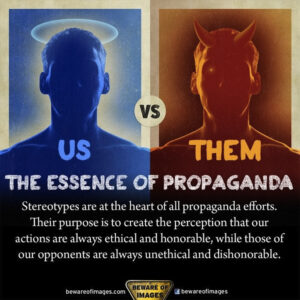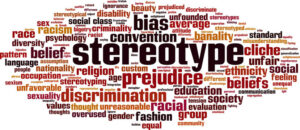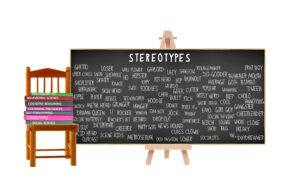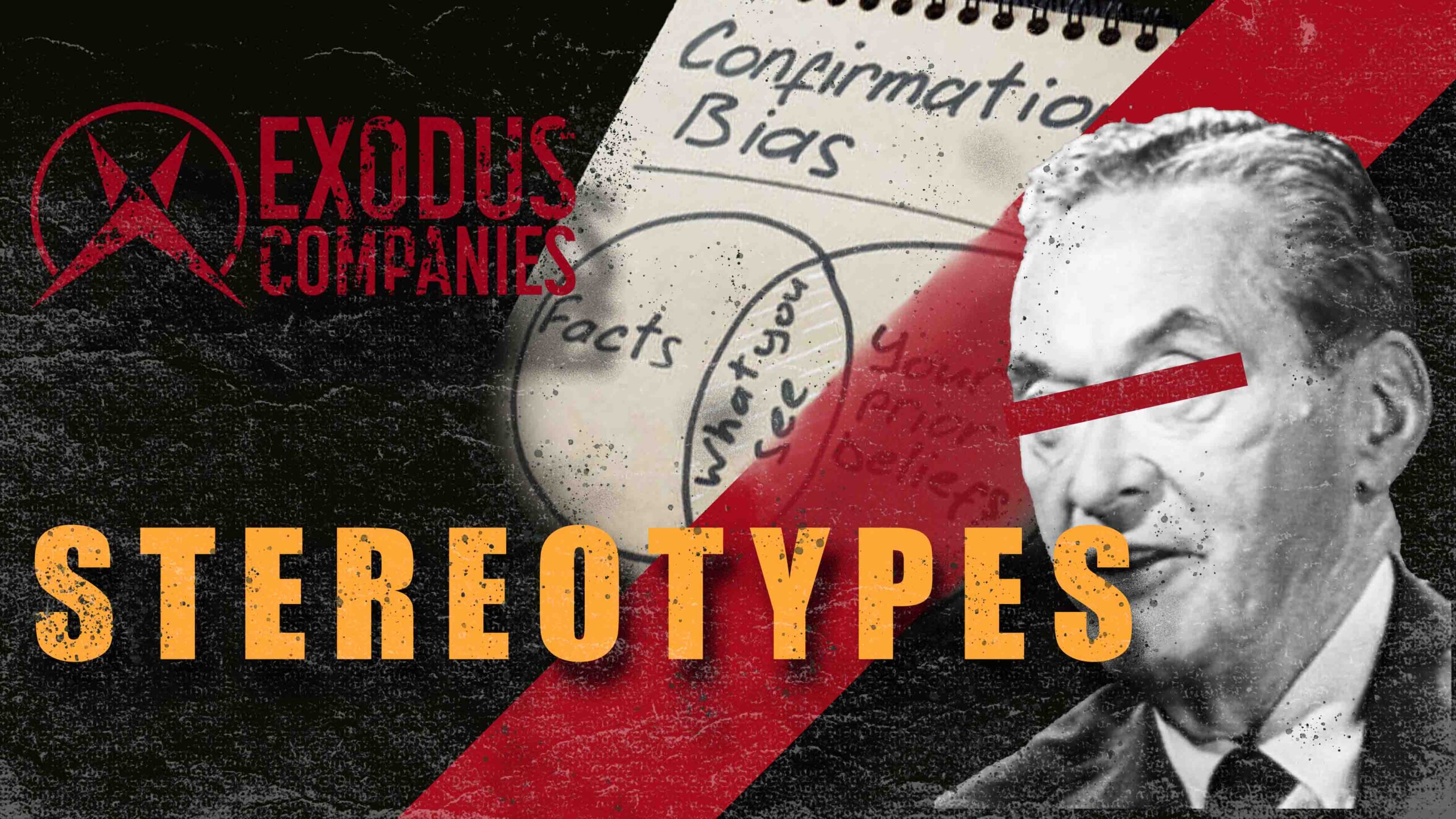Stereotypes
- November 22, 2023
- By Josh Watterud
When starting this series, the intention was not to write about individual people. The intention was to highlight the concepts of propaganda and how it is used to affect us every day and in every industry. However, these three men directly influenced the course of our culture in ways that would have ripple effects all the way until today. They built the foundation of what is used all around us. Edward Bernays with the concept of Spin in news and the use of group psychology. Ivey Lee with is use of the press release and coining of the term “Publicity”. And finally we have Walter Lippmann who coined the term “stereotype”.
Legacy
Born in Sept. 1889, Lippman lived to be 85 years old (Dec. 1974). By the end of his life he would become an accomplished newspaper commentator, author, a founder of a news magazine titled The New Republic and much more than that. Lippmann served as an assistant to the Secretary of War in 1917 and was a participant in the negotiations for the Treaty of Versailles.
 Lippman observed that moral judgment was more common than critical or constructive thought in the masses because of two things. These two things play a huge part in determining what is known and what is allowed to be known, by various means, on a broad scale. Position and contact. Lippman saw the world to be made up in a series of what he called “social sets”. There are greater sets and lesser setts, according to the individual success of the people involved in a set. The lesser sets tend to imitate the larger sets. As above, so below.
Lippman observed that moral judgment was more common than critical or constructive thought in the masses because of two things. These two things play a huge part in determining what is known and what is allowed to be known, by various means, on a broad scale. Position and contact. Lippman saw the world to be made up in a series of what he called “social sets”. There are greater sets and lesser setts, according to the individual success of the people involved in a set. The lesser sets tend to imitate the larger sets. As above, so below.
Time, by its nature (something which cannot be earned or farmed), can only be saved and lost. In public relations, attention is a finite commodity. Everyone has a limited amount to give. That attention is even more finite when a thing is not experienced directly. Attention also suffers interruptions. Therefore, ill-informed opinions and assumptions naturally arise. Inevitably, these opinions become exploited. Even if there is no adversary involved, assumptions lead to illusions and delusions. This causes you to be fooled in one way or another. Therefore, one’s decisions will lack vital information. You may not even realize you are making a decision at all!
Active Measures

The only way to guard against this phenomena is to learn how to liquidate judgment.
Opinions are made in large part by whatever information is obtained by the individual. It is possible, with practice, to hold that opinion so loosely that it hardly affects you when you find it to be wrong. A perpetual state of “I’m not sure, but it is possible” is what it takes to be truly soberminded in this crazy world.
Remove emotion and maintain an innocence, open mind, and curiosity about all things. Hold opinions like a wet bar of soap. If you hold too tightly, it will slip one way or another. Don’t drop the soap.
The Flow of Information

There are many forms through which information is disseminated and delivered to us other than news media. Some of them include magazines, social gatherings and events, church, and movies. Now, most of that has been outsourced to cyberspace and made available on demand thanks to the internet. In addition, the information obtained is done so in isolation. Alone at home, watching tv before bed. It is less likely that any stereotypes being formed are discussed until they are already concrete and active in the mind. Did you even know you were creating that prejudice about those people with purple hair? Or did you suddenly realize you agreed when someone made some political remark and then said “that’s purple haired so’n so’s for ya!”
Given this fact, every bit of information passes through many ears fingers and mouths before it is delivered to us. Even with today’s technology, we see very little direct information. Keep in mind the event, the planning of the event, the fallout, and potential motives; benefits and detriments. We see VERY little.
Polarity of Lack and Plenty
We began this blog series with a statement about the power of words. The problem in the early era of modern communications technology was the expense and resources it took to transmit a full communication. Things had to be transmitted in shortened code and then deciphered upon receipt. That same process happens now but by computers automatically and instantaneously. Now we have various forms of social media which mimic some nostalgic forms of communication medium. We have databases with the kind of technology which can hold limitless amounts of words, but there is still a limiting factor. Time and attention.
It used to be that, because of scarcity and inefficiency, information and concepts had to be distilled into their shortest and most potent form. The same is true now, but it is because of the nature of plenty. Information and content must be as direct as possible with an emphasis on intrigue. The game has evolved but the time available remains the same across the board. The distractions consuming that time are ever expanding at faster and faster rates.
Public Opinion
In his book Public Opinion, written in the 1920’s, Walter Lippmann lays the groundwork for, and describes a specific form of ideals everyone has. He calls these “stereotypes” because the word “ideals” has or had a particularly positive stigma to it. Whereas stereotypes are inherently neutral (in that time), albeit limiting to one’s perceptions.
 He points out several things that are generally assumed by every person, however usually dismissed. It may benefit every person, in today’s world especially, to really think about these concepts.
He points out several things that are generally assumed by every person, however usually dismissed. It may benefit every person, in today’s world especially, to really think about these concepts.
Our opinions cover much greater and more complex aspects of reality than any human could ever hope to directly observe. Every report you see or hear, whether on the news, or from your best friend or an eyewitness of the event is strictly partial. A witnesses account is subject to selective memory based on one point of view, filtered through their past experiences as well as images they have seen which they can pull from to reconstruct what they are describing.
Photos have a massive amount of influence on all our ways of thinking. Movies provide a litany of images with emotions and apocryphal stories which build our preconceived ideas… stereotypes.
If you want to influence people, you must obtain a fluid understanding of what the people think they know as well as their general perception of the world around them. Keeping in mind less time means less attention. People lacking patience or time are more likely to seek out a slight connection to confirm their opinions.
A Way to Cope
The word “stereotype” describes a psychological mechanism. The mind hates things it does not know or understand. Therefore, it tends to try to make since of the world in somewhat of a binary way. Simplified and quick. Stereotypes divide your reality into “familiar” or “strange” by exaggerating that difference. Things that may be slightly familiar, are seen as VERY familiar. Things that are slightly strange are seen as foreign, perhaps even demonic. This can be seen with the public’s response to any technology that drives the heart of a new industry. For example, AI.
Lippmann recognized a way to get a grip on the local political habits of a nation. He proposed looking to the nursery, the school, and the church. Here you can see what traditions are being passed down from one generation to another. This is like soil testing. By testing the soil, you learn what makes up the micro-culture. This is how botanists determine what seeds will grow and what kinds of plants they can propagate in the culture they’re working with. What organisms make up the soil around the grass roots. As well as what kind of roots are already growing.
Walls of the Mind
Have you heard the expression “don’t be afraid to let your walls down”? Those walls are fundamentally made up of a litany of stereotypes. This is how we make since of a world that is not our home and protect ourselves with what we define as “safe” and “not-safe” zones.
For this reason, anything that contradicts our stereotypes presents a threat to our understanding of reality and can shake us to the core. It feels like an attack on the universe and existence itself, and for good reason. It is in fact an attack on the very core of OUR universe. When your paradigm is challenged, it requires your mind to admit that it could be wrong. That it is fallible. By nature, the mind wants to be in total control and all-knowing.
The purpose of your mind is to rule and protect your being. This makes it EXTREMELY difficult for your mind to accept such a reality where it is not god. Once this begins to break down, one of two things begin to happen. Fight or flight. Your mind begins to go into a state of faith or paranoia. Once you admit that YOUR universe and THE universe are not the same thing, you can then begin to accept that it is okay not to know everything.
A Lesson to Learn
There is an old gag gift that has all kinds of possible origins depending on where you look, that is often called the “finger trap” among other names. The concept was that you stick a finger in each end and try to escape. The more you pull or resist, the tighter the trap got. But if you push in, it would release you. This presents somewhat of a strong concept that can be adopted philosophically. The more you try to control things, the less control you have. If you give up religion, you might find God. The same goes for you’re understanding of the world around you.
This acknowledgement of reality could put a lot of pressure on everything and everyone who depends on you. This happens often with political leaders and religious leaders. When the reality of the world they built their entire empire and ministry on is challenged, their entire life’s work could be at stake. If they are not willing to put in the extra work, they will reject the truth and lead their people astray. Reinforcing those stereotypes in your own mind is the beginning of a VERY slippery slope. This is one way demigods are created.
Conclusion
Whatever social set you are involved in, always remember that every person sees a limited picture of what is going on. Be aware of your own proclivities to simplify things and make since of the world around you. Remember that you do in fact have stereotypes and assumptions, and that they are not always going to be accurate. Keep a loose hold on your opinions and be okay with not understanding everything around you. Seek to gain more of a grasp of what is going on, but always be aware that you don’t know all of it, and that is okay.
“…for the weapons of our warfare are not fleshly but powerful… tearing down reasonings even every high thing being lifted up against the knowledge of God, and taking captive every thought…” 2 Cor 10:4,5 “Behold, I AM will bring evil upon this people, the fruit of their thoughts…” Jer 6:19 (One New Man Bible)
This is the final Blog in a series of three. Propa-Gate is the first followed by Publicity. I hope you enjoyed







